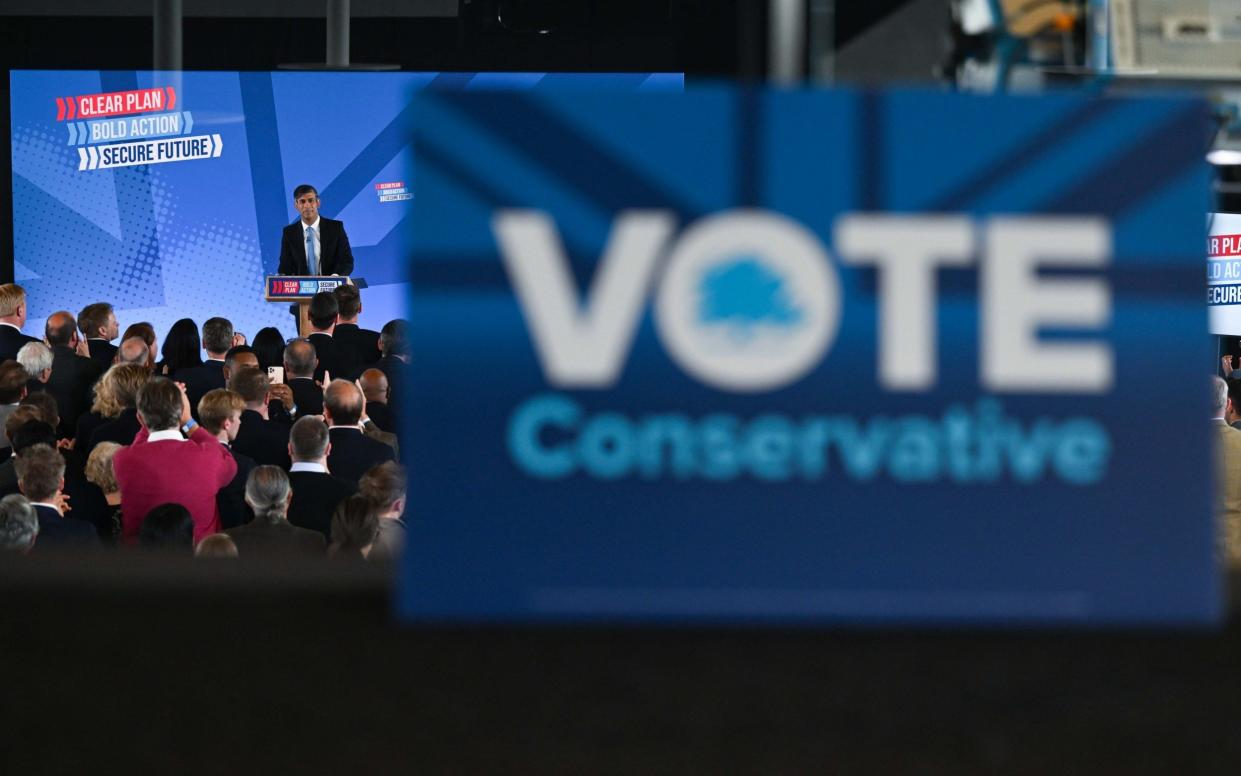A rushed Tory leadership contest would not be in the interests of the party, or the country

It is not given to mere mortal human beings to predict the future. But you don’t have to be the Oracle of Delphi to suspect, as the polls are suggesting, that we may have a Labour government on Friday.
If that happens, we will doubtless be inundated by a vast tide of analysis offered by every would-be pundit, from pub bore to party activist to academic expert.
We can safely leave any post mortems to another day. But there is one thing that we can say now with absolute certainty. If the worst happens, the Conservative Party must have a functioning front bench from the start, because the biggest changes from a Labour government will come in the first hundred days.
But the Conservative Party should not rush into another leadership election. On the contrary, it should think slowly, deeply and carefully about what has gone wrong, who will be best placed to take the party forward, and how.
Much ink has already been spilled on the question of the right way to choose a new leader. One option, not yet considered, would be for MPs to take the final decision but for each MP to have to justify their preferred choice of leader to their local party members before the final vote. This would increase accountability while preserving the representative principle.
There are three other fundamental questions to be addressed. The first is, does the Conservative Party as it is presently constituted really believe in the idea of conservatism?
Conservatism in the English tradition is a reforming and not a radical disposition: an instinct to preserve what is best in human society, to curb injustice and celebrate the rule of law, and to improve people’s lives and enhance their freedom, in particular from the excessive burdens of state regulation and tax.
These are the wellsprings of the Conservative Party’s collective instincts when it is at its best: for a strong nation state, for the institutions of civil society, for entrepreneurship and business growth, for fiscal probity and care in spending the public’s money.
This disposition does not exclude radical ideas or policies. It merely demands that they are properly based on effective prior consideration and preparation.
After all, the radicalism of Margaret Thatcher in the 1980s, with privatisation and home ownership, did not spring fully-formed like Athena from the head of Zeus. Those policies were the vigorous extension of good ideas that had already proved their worth. The same was not true of the poll tax, which was genuinely revolutionary, and disastrous.
The second question is this: is the Conservative Party doing a good enough job of recruiting talented individuals who can be candidates for public office?
One of the principal functions of a political party is to act as a conduit for people of ability to enter public life. That means recruiting those with real life experience – not merely Westminster insiders, but those who have, crucially, demonstrated that they believe in conservative principles, and have evinced a clear commitment to public service, before they ever considered entering politics.
Such people will come from any background and walk of life. The idea that councillors and other people well known to local Conservative associations are to be rejected in favour of those known to the central party is an embarrassingly facile and foolish one. And selecting people en masse in the heat of a snap general election is far from the careful sifting and selection that is required.
The third question is this: can the Conservative Party articulate over time a new programme of government which is intellectually compelling, practically achievable and inspiring to others?
Such a programme will draw on the answers already given to questions one and two above. Radicalism will have to be earned through the hard grind of proper policy work. Effectiveness requires an institutional rebuilding as well as the development of a new generation of experienced and competent Members of Parliament.
This will take considerable time, effort and investment, as it should. By contrast, to attempt to spring back immediately would suggest that the last few years had taught the party nothing.
All of this implies a leadership election process which is not precipitate but steady, deliberate and wide-ranging, allowing scope for the party to take stock. It should run through the late summer and autumn, into a party conference in which all of the candidates can make the case for themselves and be scrutinised and held accountable by the membership, before a final decision is made.
Anyone who knows the Prime Minister will know that he is driven by an acute sense of public duty. When and if he decides to step down as party leader, to facilitate a process of this kind will be a last great service – not merely to his party but, since our democracy demands an effective opposition, to the nation as well.
Jesse Norman is standing for re-election as Conservative MP for Hereford and South Herefordshire

 Yahoo News
Yahoo News 
